The Unboxed Market is a zero-waste grocery store located on Toronto’s trendy Dundas Street West. Founded by Michelle Genttner and Luis Martins in 2019, the market was inspired by the culture and appreciation of food in the rural areas they grew up in. Dedicating several years to the restaurant industry, Michelle and Luis saw firsthand the disturbing amount of food and packaging waste produced every day.
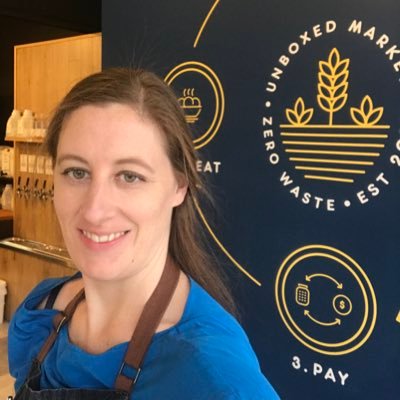
This ignited their mission to create a zero-waste marketplace and to reconnect people to the food they consume. Onside Media spoke with Michelle to learn about the Unboxed Market’s origin story, the procedures of keeping every department waste-free, and the inspiration of human connection.
Both you and your business partner grew up in rural areas. How does your upbringing influence the Unboxed Market being in a more urban area?
Michelle Genttner: It has a big influence on how we approach even just the store’s design. We were used to going to little roadside markets, farmer’s markets, and independent small grocery stores that use the local food supply. Having the ability to access produce, touch it, and smell it. There has been a massive uptake of distribution companies in the city and everywhere else to wrap everything in plastic.
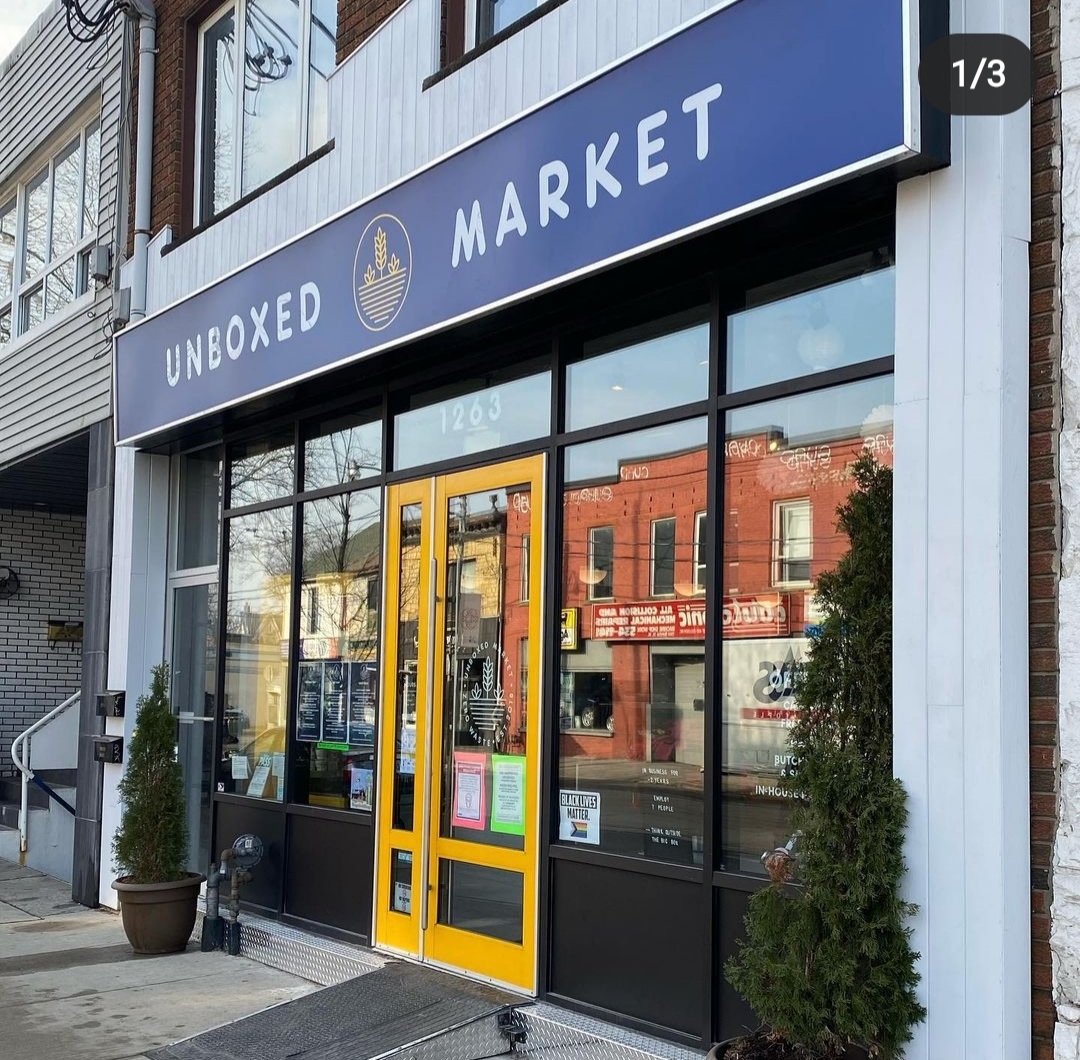
For us, the objective for produce is for the customer to see the product they are buying. It is hard to do that when it’s in a package. So, we have taken our roots all the way through the store. Obviously, that is very much in line with the ethos of the entire store in reducing single-use packaging. It is also nice for us to recognize that we have small, local cheese distributors and different meats. We can highlight those producers in the most aware manner.
What is the biggest challenge to running a zero-waste grocery store? What is the biggest reward?
The biggest challenge has been the packaging itself. That’s because it is an ongoing conversation with all levels of production. If you’re looking at the manufacturer or the distributor or considering regulations and how they modify the plastic. Even once we have nailed down the information for one product, another product will come up from the same company, and we will have to reverify all that information. Sometimes, some things work and some things don’t with what we’re trying to do. That goes all the way up to speaking with levels of government.
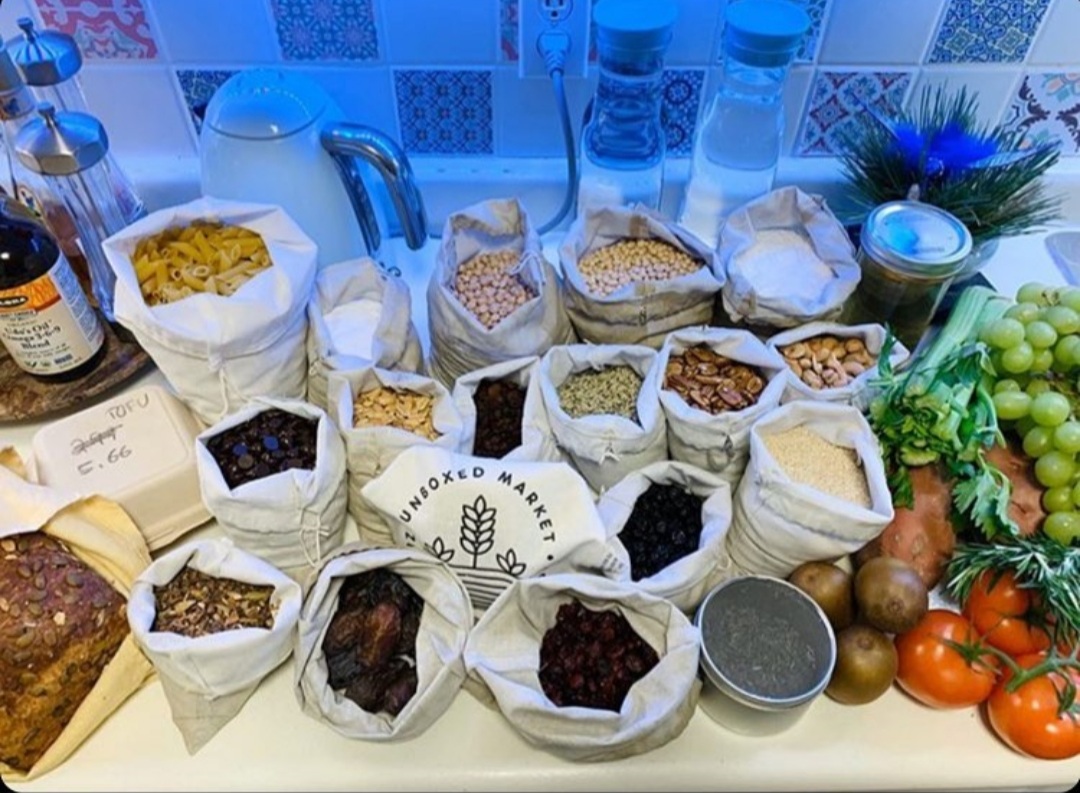
The rewarding part is truly our customers. Knowing that people come in excited to shop at our store. Hopefully, when COVID is over, people will be able to come in, wander around the store, have conversations, and interact. Right now, we can’t have those long, drawn-out conversations because we’ve limited our capacity to so small. We try to keep the customers moving through the store, so there is not a long line up outside the store.
A huge component of what makes us really happy and excited every day is seeing our customers excited. We have people who come into the store and say “thank you for being here, and being open”. We also have people who send us emails and messages saying “I found this product that would be perfect in your store”. Those are the really fun parts, finding new products and seeing companies make changes so that we can feature them in our store. That is what keeps us going.
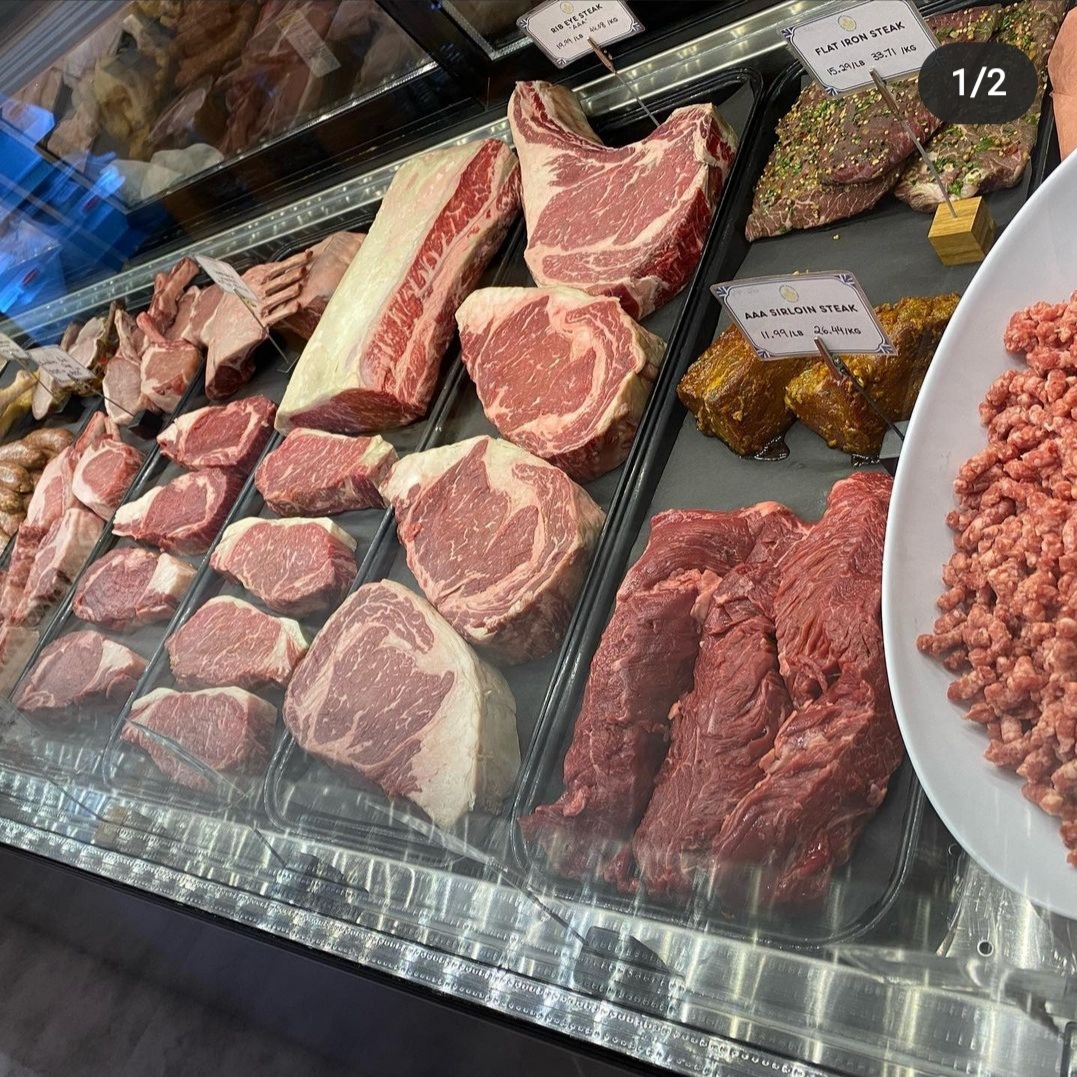
Which department of the store requires the most effort to keep it waste-free?
The department that requires the most effort to keep waste-free would be produce because it is an on-going conversation with different vendors multiple times a week. Ongoings that we have not been able to keep waste-free, but we’ve have reduced to the minimal amount is the meat and deli counter.
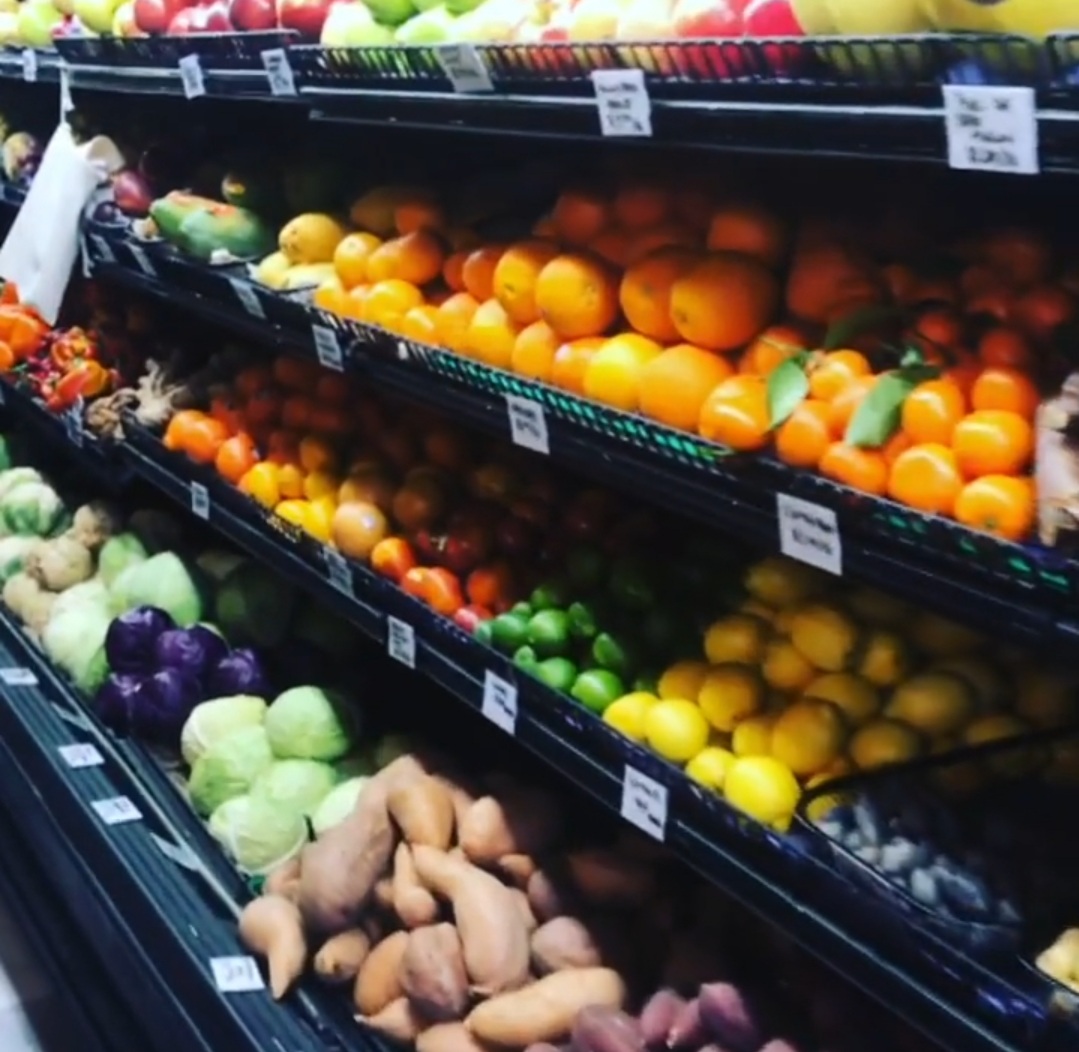
What zero-waste practices did you have in your life before opening The Unboxed Market?
We were always conscious about not being over-consumers. We were never about: let us buy the latest or the best thing, and 15 of this and every colour in that. We are all about “use what we have” and try to repair. I’m currently trying to repair one of my electronics that is not cooperating. We also have the advantage of living in a small apartment in downtown Toronto. So, being aware of what you’re purchasing in terms of food and how you are using it play a huge part in living sustainably.
For more information, visit https://unboxedmarket.com






